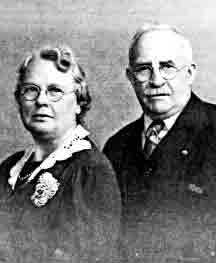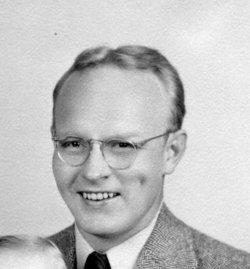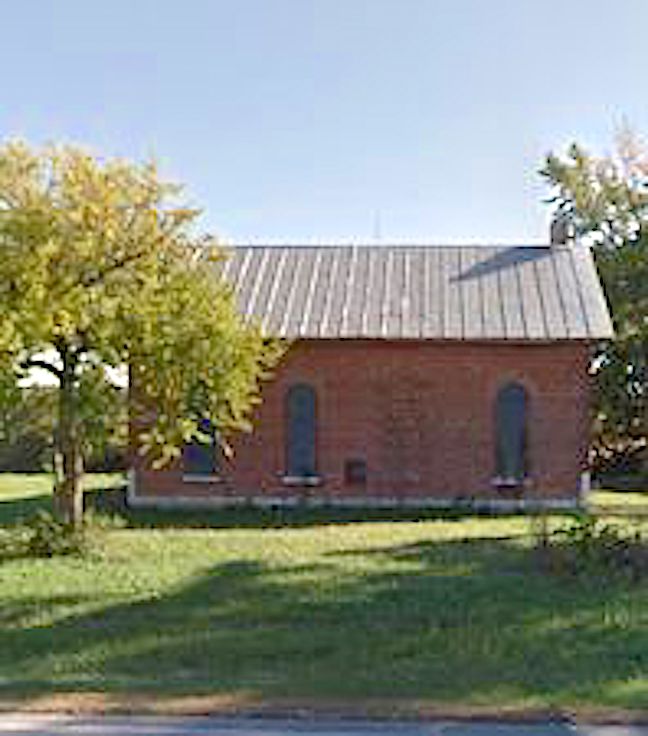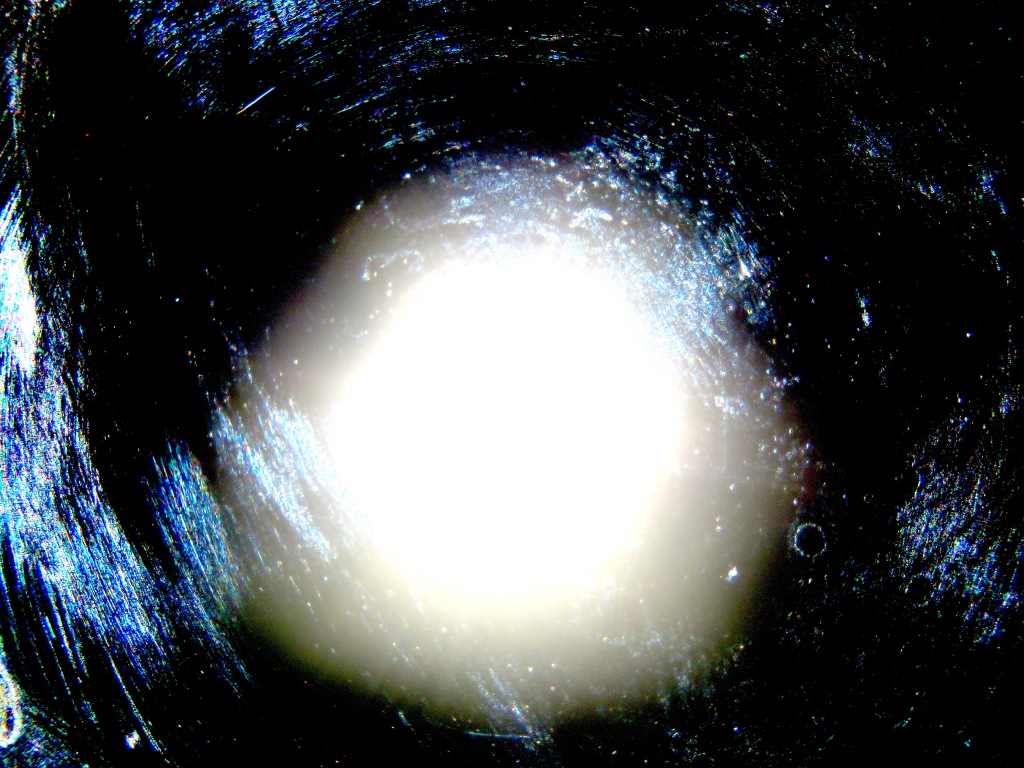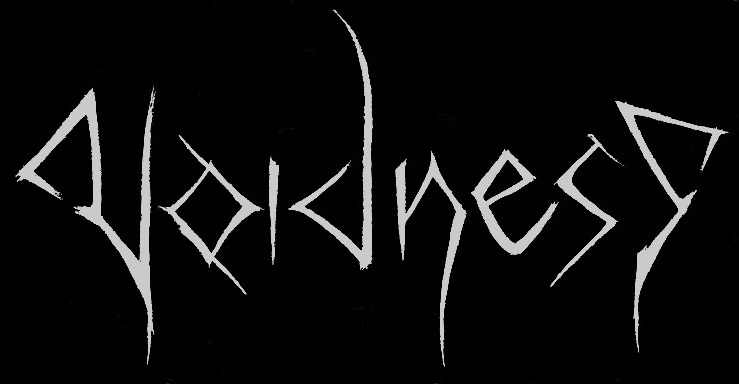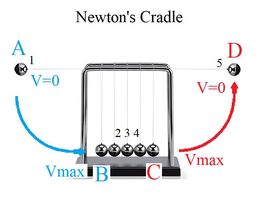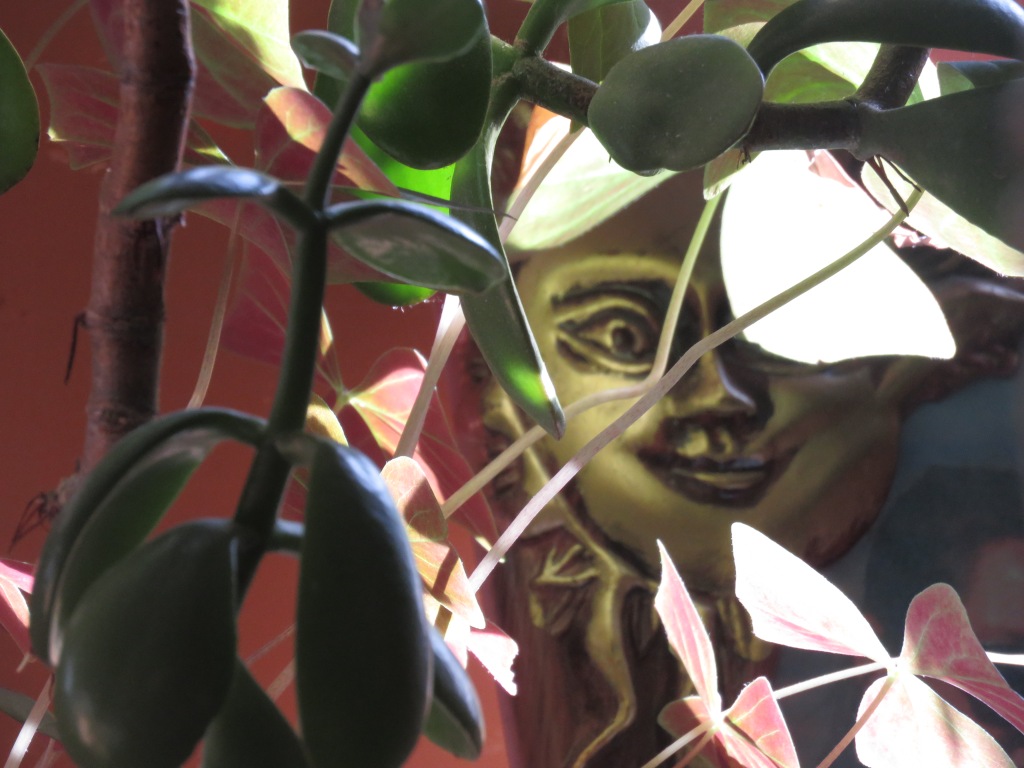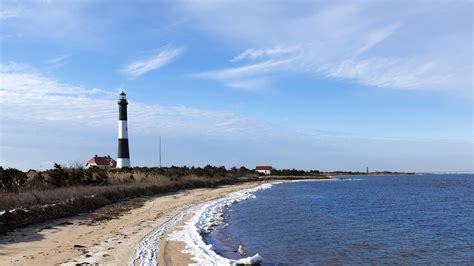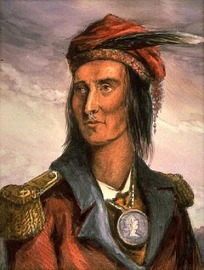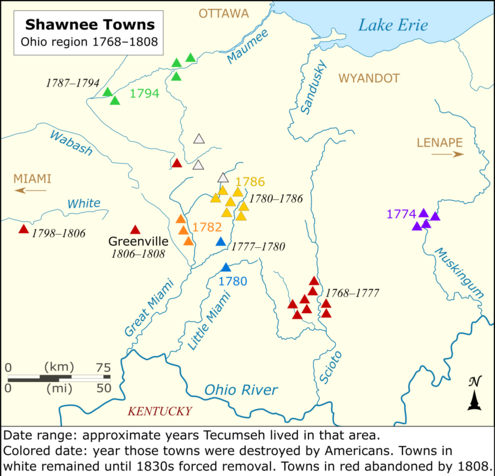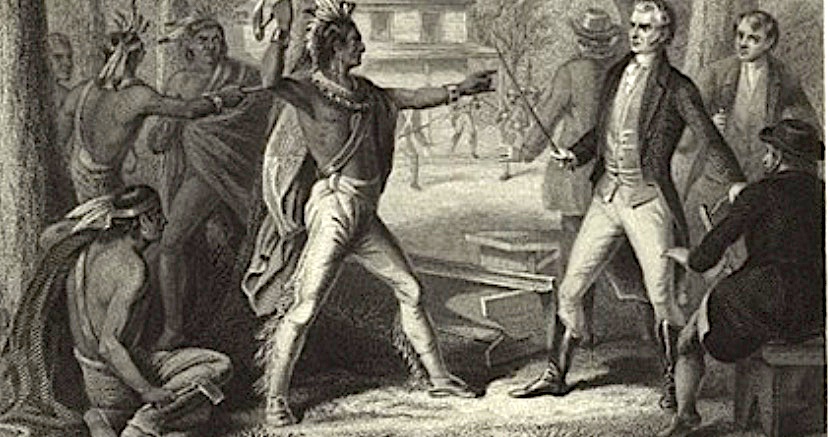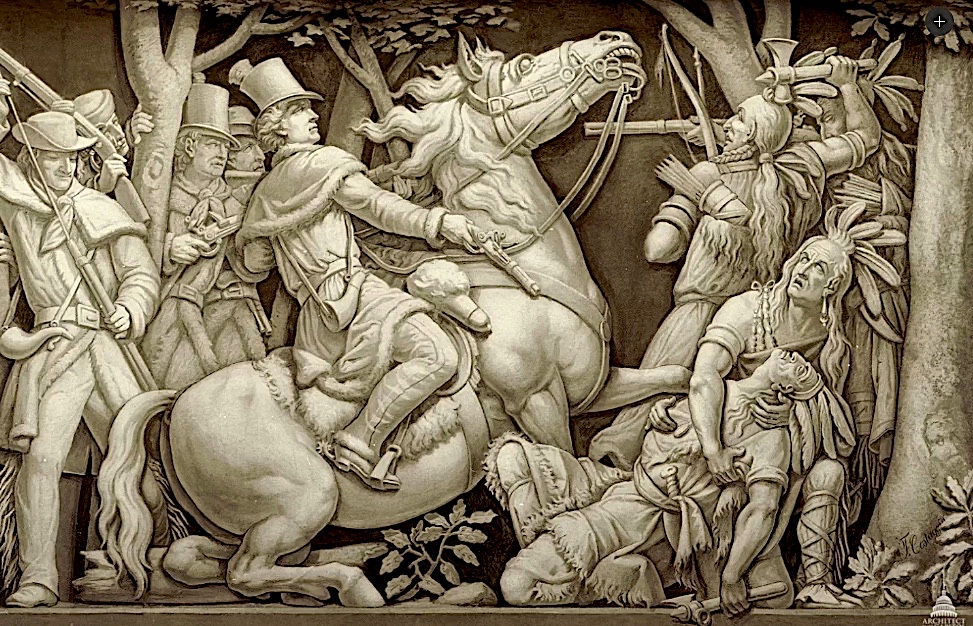Wednesday – Sept. 11, 1963
Two weeks ago I bought some new tires for my car. The old tires were worn so smooth that the cord was showing, yet and I had not had the first flat. The garage man at Firestone said that if he’d have tried to drive on those tires he would have never made it home. But somehow I had been driving just like normal and I was only a hair away from a blowout. Two days after I bought the tires, I had two flats, both at once. Nails!
Today I looked out of the window upon a beautiful September morning––and another flat tire. I pulled on the emergency brake to keep the car from moving and the brake handle popped off.
The rest is a situation comedy. I went to the trunk to get the spare and the car began to move. I stood there pondering the next action. I decided to go ahead and fix the flat, so I silently cursing as the car crashed to the ground, the wheel thudding sickly on the hard graveled mud. I managed to get the car back up back up and put the tire on, only the spare is a whitewall and flat as well. The spare had a nail sticking in it, but it was still up and full of air. Back to the jack again, and after three tries I finally got the tire changed.
Monday – Oct. 7,1963
This weekend my life has been under water with no contact with the outside world. I have basked in laziness, accomplishing little, singing for my own enjoyment, and watching television. I read a few books, rewrote the ending to “The Fantasy of Fowler’s Hill” and Friday I finally started the story that began with Shannon. I hope it turns out to be a spellbinder.
Over the weekend Billy and I went to Columbus to practice with Sheri. We left Saturday afternoon, found Sheri’s dorm, practiced until suppertime, then Billy and I went over to find Fred L. He lives in a fine frat house at the top of a giant hill that falls off to the street. Fred went with us to pick up Sheri. He has a great big, gigantic, block-busting guitar that he uses as a prop when he hoots.
It’s handmade as a prop and unique in all the world. We loaded this in the trunk, picked up a drummer and some Congo drums, then headed for the Hoot at the Sacred Mushroom. We did two sets. The first was mediocre, but the second was the greatest we’ve ever done. The showmanship was fine, the songs perfect, and the audience appreciated it thoroughly. Sheri introduced me to a black-eyed, black haired Spanish girl named Maria Louisa Francisca Cervantes just before we went on for the second set. Being preoccupied and thinking about what I was going to use for showmanship, I barely spoke and she left.
When I tried to find the rest of my trio Sheri gave me a scalding for not being polite, because the girl wanted to meet me. She came back, thank God, and I looked again. What I saw, I liked––saucy, hot-blooded, typically Spanish-American. I’ll bet she had a temper like forged steel. I acted a bit more civil to her then we did our set and I was left free for the night. The girls both had taken a two-o’clock leave. They are entitled to two per month. Any other weekend they must be in by one. We got them in at the appointed hour, then went back to Fred’s frat house and into the music room. About four musicians with guitars and a piano player played until 4:00 A .M., then went all went to bed. At ten, I got up. We ate and at 1:00 we went over to pick up Sheri. She wanted to practice, but I was all practiced out and wanted no part of it.
Sheri, Bill, Maria, Fred, and a girl that we fixed Fred up with named Gloria, went out for a ride. We went downtown where Maria had to return a key to an apartment to a fellow. Hmmmm.We picked up some beer and went out to find a place in the country. We ended up in a quarry along a railroad track with woods on both sides. We sat on the rails while Maria sketched Sheri’s face, drank the beer and walked along the tracks. It was a pleasant, but not a very eventful afternoon.
Monday – Oct. 15, 1963
Billy got a part in the school play (Junior class) last week, the male lead, and lost it today. The director dismissed him for some debatable reason. Billy said it was because he was sick Friday and missed play practice. I rather doubt it. He got two letter saying that he was failing both English and Algebra II. The play director is his English teacher. But if’ she knew he was failing, why would she give him the part in the first place?
We practiced with Sheri over the weekend. Billy and Dad got into fight and Billy called Dad and I trash. He was forbidden to go to Dayton to practice, so I had to bring Sheri down here. She added trio a bass player in Columbus.
I went to Dayton to drop off’ the matte of’ the group f’or paper publication, The big hoot is Saturday at Wayne High School, while I was on Dayton I decided to look up Shannon. Last week her story, which has been playing in my mind for some time, finally took shape and became “Yellow is the Color of’ Love” It is very good, I think, but also very weird. I thought it only fitting that she should read it. I went out to her old house and asked the neighbors where they had moved. A blonde woman across the street on Timberline gave me the forwarding address. Shannon was there with her mother. I talked with her and took her to the grocery store. Here’s what happened. She had an argument with her father and took another overdose of sleeping pills. The ambulance could not find their house for forty minutes, and by this time her lungs had collapsed and she was nearly dead. They rushed her to the hospital where she lay on the brink of’ death for several days. It was also a psychiatric ward. When she recovered, she still had after-effects like a kidney ailment and heart spasms. They said that the only way they would release her was that she must get married. That sounded quite phony to me, but she said that was so. It was sort of a straight-jacket marriage instead of a shotgun wedding, as usual. So, she married Tom, the guy from Oregon. He’s working at NCR and they’re moving from place to place. I sent the story in the mail today with a cover-letter telling her about the character and how she inspired it. Anyhow, I’m happy that I know her situation, but very unhappy to see it. She’s a good kid and
really deserves much more than that, but doesn’t know how to harvest love and happiness.
Wednesday – Oct 23,1963
Friday was Mother’s birthday. I got her a pair of fleece lined slippers and they went down to the Stein’s Saturday afternoon for dinner.We had another concert Saturday night––one that brought $200. We had practiced all day. We spent the night over in Dayton and practiced Sunday. Billy and I are working out intricate guitar accompaniments and our harmony is getting very good. We have improved vastly and the hope that we will go big time does not seem so vast and reaching now.
Today Shannon mailed back my story. The morning is generally a happy time for me. I wait in bed until I’m sure the mailman has come, then rush out immediately to reap the harvesting from the galvanized box. Today I found my story with the postmark from Dayton. There was no return address, and no name. I knew it was from Shannon.
I rather hated to open it. I was afraid that she would not like the story and I would find some cutting, harsh comments inside. Instead, the letter read like this:
“Ken, I’m really quite surprised at your amazing story. So many things are reconstructed with such total perceptiveness. I don’t know whether this was meant be a tribute or a disarmament, so I say––with great caution––well, done. If, by this, you feel you have found me out, as I feel you have––again––well done. I’m older now, Ken, and much wiser than I sometimes appear. I’ve lost the part of me that would do such things as in yesteryear. I am sad, but on the same hand quite relieved of the burden.”
I read the letter over several times. What was she talking about? Finally, it struck me. I had written a bit of fiction into the story. I said that if a yellow balloon walked the aisle of matrimony it walked it by itself. I hinted that the character in the story had not been married but had the baby illegitimately. Unknowingly, I hit upon the truth. That is her burden. Her sadness is her marriage and the suicide attempts.
The knowledge came gradually and I was lost in thought. How much more of a story is there behind the part that I know? I should imagine that the story is not yet complete. She had lied about her first marriage. Who can blame her. But one lie leads to another, and to make her stories believable she twisted one lie around the another to protect what reputation she had left. And probably to protect the baby.
“I too wish you well, my friend,” she wrote. “Your life will be good as the daughter of Thane predicted.”
She doesn’t love her husband and her baby needs a father. I will probably never see her again, but I will remember her forever.
Oct 1963 – Sunday
Billy and I went to Columbus Friday (he was off school). Sheri was just getting ready to go home. I thought we’d probably be spending the night there, but instead we headed for Dayton after running out to the TV station and setting up an audition. Sheri seemed to be in a better mood this week, or perhaps it was me. Maybe I’ve finally come to the realization that she’s indispensable to the outfit and I’m trying to get along a little better. We went to the Lemon Tree and did a terrible set. It was absolutely a stinker. We had not practiced for a week and it showed up in the performance.
Joe D., Mike, Sheri, Bill and I went down to Charlie’s where the Osborne Brothers play often play, but they had a rock and roll band that night and five drunk girls running around with provocatively sexual glances and actions. “C’mon in, we’re gonna have a party,” the one blonde had said just before we entered. She showed us in and made certain that we had a seat, then danced around, twisting her pelvis, shimmering to the pulsating wham of the rotten music. A couple of girls got up on the stage and sang with the lead singer. They fingered his guitar and shook their hips at him. I nearly f’ell off the chair with laughter.
Saturday we practiced all day, worked out several new songs and listened to ourselves on the tape recorder. For the first time we are beginning to sound well on tape. Everything is coming out so much better. Actually, the three of us had a ball just being together over the weekend. We talked of our future and the sound are putting out, joked, and laughed continually. We are going to New York by next summer, we hope. That’s not a definite hope, but if everything goes right, maybe we can make it. I am putting my future at stake. Saturday night before coming home went to the Art Institute and walked around the shaded lawns looking out over the city. We descended the spiral steps to the river and walked along the banks, talking and feeling very good. We drove around the city here and there circling and looking for the finer views, content with just watching the lights and the people, drinking the atmosphere of happiness that can quickly be lost in the turmoil of living. We are living fast, but we are enjoying it. Before everything grinds to a shattering halt or we enjoy the :j!!D fruits of the promise that now shows, I have a. feeling that things will move much faster. The main message is that we must not forget that we must
enjoy life and take the time out to have a little fun.
I thought that Shannon was out of my life. Perhaps she is, but that haunting damn girl isn’t out of my memories. I dreamed of her last night, just as I used to dream of Russene and ached with the feeling that she was gone, like I dreamed of Shirley that one night in Cleveland and awoke wanting her so badly. I remember the dreams because the wanting is so hard afterwards, and it seems as though I never dream of a girl with such intensity until it is too late for us.
In the dream, Shannon was still married and lived in Greenville. I remember that she lived behind a row of buildings without faces that stretched endlessly, like an ancient, musty arcade. I entered down a road at first from the back and came to a place that I’d never seen and never thought existed around Greenville. It was dusty and there was a little lake with some not-too-shady-trees, and a row of little white cottages where Shannon and her husband lived.
She was sitting on a white bench in her swimming suit next to the lake. I got out of the car and walked over to her. She was sad and lonely and confided her loneliness to me. It was a long dream. I remember waking and thinking that it was practically a story complete in itself, but the details have now escaped me. Somehow we loved one another, not physically, just spiritually. I remember her driving away in her little red Volvo and I returned from the front.
I entered the wrong door in the faceless building. The lettering on the front said, “The Explorer’s Club”. Inside, the arcade was colored with a strange orange light and there were little rooms full hunting debris and trophies. The smell of cigars and liquor were warm in my nostrils. In one of the unseen rooms in the forbidden interior, men laughed and the sounds of their laughing were strange, like the laugh of a lost old man who once a day finds a little happiness at a card game in the local pool hall. The entire place has the atmosphere of a pool hall.
I remember passing one little room where the door was open. A toilet with rough-hewn wooden urinals were standing in a row like tree trunks. Then, I went back outside and entered the next door where Shannon’s little corner of paradise laid before me in a blurry vision. I don’t know what happened to her husband. She and I lived together in a strange way. It was very fine though. I thought it best that she not be strained in her happiness. I did my best to make, her life pleasant, restore her happiness, and dispel those sorrows carried in her life. It was a dream, but somehow I awoke wanting the dream to be truth. I was almost ready to run to Dayton, find her and whisk her away. Funny, she really might be happy by now, but I doubt it.
Life with her would be life on a bed of nails. It would sap of my strength and that would be hard to take, but subconsciously I wanted to help her like I’ve haver wanted to help another.
Then I woke up.
Speaking of dreams… twice now I’ve dreamed about the trio. No, three times, and all were sex dreams. Sheri, to me, is not femme fatale that some of the other girls are. In fact, she is almost
sexless to me. I admit she has her charms, but somehow, I don ‘t see her as a sexual stimulus. Yet that is the way it popped up in my dreams. Once I dreamed that she was running around naked
at a party. Another time I dreamed of Billy, she and I driving along the streets, bare from the waist down. A few nights ago the dream took on story form, but now again the details and continuity are forgotten. It’s surprising how many of my dreams are truly short stories and absolutely complete (though usually with several flaws). I dreamed that Sheri, Billy and I were living together. I don’t know whether we were spending the night at her house or we had an apartment of our own, but it was decided that to save on expanses and to bring compatibility to the trio, Sheri would double as mistress for both Billy and I. The first night together was a night of wonder. Evidently I had already lost my virginity, because after the night was over and day had broken over the city, a little box lay on a footstool for Billy. It was a reward for losing his virginity, much like pennies under the pillow from the good fairy for losing your first tooth.
Sheri’s father came in and picked up the box. I had not looked at it and ‘I remained hidden behind the couch because the box was blue and white and looked similar to a prophylactic box that is on the market. (I worked at a drug store and even remember the brand name, as I sold them often enough.) Her father opened the box and a slew of gumballs rolled out on the floor. It was queer.
I laughed and remember thinking, “What sort of an oaf is that stupid fairy, leaving gum balls for losing your maidenhead.
The dream ended. Now it seems almost funny when I remember it. It really wasn’t sexy at all, more like a delicately made movie.
Monday – Nov. 4, 1963
Last Tuesday I drove to Columbus to dig up some jobs. I found one advertised in the student paper at CSU and Sheri and I looked into it. I found that Hootenanny, the ABC Saturday night show, probably isn’t coming to Ohio State after all. Also, I looked in the phone directory f’or entertainment management agencies and found one that looked promising. I went over to the agent, who had the unlikely name of Howdy Gorman. He said he’d set up an audition at a TV station f’or us. The audition was tonight. We got the job f’or Saturday at the Fort Hayes Hotel, Presidential Suite, entertaining some drunken foot doctors and made another sixty bucks. This evening Dad drove Billy to Columbus, picked up Sheri, and then went to Howdy Gorman’s office. We followed him over to the TV station (Columbus Channel 10).
Gorman had brought two groups for the audition. The show is called “Gather Round,” leans rather heavily toward folk. It is being aired once a month. Starting, in December they expect to air it weekly on Friday night.We went through a f’ew songs. They had told us that it was an informal audition without a mike, etc. They then wanted me to introduce a song, so I introduced Darlin’ Corey. They thought we were very good. There was another entertainment manager f’rom a nightclub called “The Gloria” there to hear the audition. Gorman said he was killing several birds with one shot by auditioning us f’or several jobs at once. Anyhow, our audition was successful and they thought that we did a an excellent job.
Then came the other group. They brought along their manager and a public address system and they let them use it. The result was that they seemed more professional than we had seemed, because they introduced their numbers and didn’t adhere to the informal setup.
Live and learn. I don ‘t know the result of’ the audition yet. We had some fine comments, but it seemed as though the talk .liraS about the other group rather than ours. Even Gorman gathered around the other group’s manager. The TV man said that he wants to pit us on the air and he will be getting ahold of Gorman. I don’t know anything about the nightclub. What’ll come of it, I don’t know. I’ve got to talk with Gorman again Saturday and see what’s cooking. Anyhow, this Gorman says he has recording contacts and can do us up right. He’s a very short little man, probably f’ive-f’oot one or two with sandy hair and mustache. Things will either stand still or move fast now that we are pushing ourselves.
Nov. 11, 1963 – Sunday
Dick T. is home on furlough. Friday night we went to Dayton so that he could hear the Osborne Brothers. Clark Crites, the Lemon Tree’s new manager, had called on Thursday and wanted us to see him. He had a job lined up and wants to, act as a sort of’ agent f’or jobs that come through the Lemon Tree, getting the usual ten per cent.
We went to Dayton to tell Sheri’s folks, then went over to the Lemon Tree to see Clark. He was tied up with another man in the office and couldn’t see us right then. We sat through a set of the Canadian folksinger, Cedric Smith, then scooted down to the Bitter End––which is the new name for Charlie’s Bar––to hear the Osborne Brothers. After their set was over it was back to the Lemon Tree to see Clark. I found that Clark had just gone down to the Bitter End to see us. After that came a comedy of errors. We went back down to see Clark and found that he had just gone back to the Lemon Tree to meet us. We went Back to the Lemon Tree and found that he had just left to meet us at the Bitter End.
There we sat at the Lemon Tree waiting for him to come. There he sat at the Bitter End waiting for us to come back. Half an hour later, the phone rang: “Are they still there?” he asked. When told yes he said, “Keep them there, I’ll be right up.”
Finally we get together and talked over business matters, then went back down to hear the Osborne Brothers finish up another set. Both Sonny and Benny Birchfield were in great moods tonight and we talked with them for a long time.
Saturday, Billy and I took Dick to Columbus with us. It was the first time he got to hear the trio perform. It was nothing special, really, just an afternoon practice session in a cemetery, then Sheri’s dorm room, and an evening practice. Sheri got me a date for tonight and one for Dick too. Gayle O. was Dick’s date, the same girl who dated Fred the other week.
Sheri’s been feeding me a lot of information about a roommate of hers that wants but a tall, good looking, rich man. She sounded rather like a snob from the conversation about her. Once, when I called Sheri, she answered the phone. From her voice I could tell she was overly sophisticated and perhaps a bit oily. Well, suddenly, it seems, she turned an about face. She had heard us practice, though I’ve never met her, and she read my story “The Fantasy of Fowler’s Hill” last week. Sheri was shocked when she started questioning her about me and even more shocked when she asked her to set up a date with me. In fact, she was flabbergasted. The girl’s name is Joan. I was sure she was in for a boring evening and I was certain she was not my type. Finally, in the afternoon, we met. She’s a very pretty girl and looks much like I pictured her as looking––tall, well-groomed and collegiate. In the evening we drove around town and stopped at a bar which was crowded to capacity. We had tried several other places offering entertainment, but we ended up back up near the campus. The bars are filled with students on Saturday night.We bought a pizza next door and then got some beer to go from the bar and headed out in the country to eat.
I found a nice little spot of a not-to-traveled road where we had a beer, ate. and talked. Joan and I got along surprisingly well. Conversation seemed strained at times and things did not flow naturally, but all in all it was a fairly well-matched date. I didn’t go out of my way to impress her, I just joked along and acted the hick that I really am––dropping the “g”on “goin'” and speaking in the normal Darke County dialect that sometimes makes me feel out of place in collegiate crowds. It’s not that my speech is a real dialect or that I do not express myself well. I really, I do. But the folks around Greenville do have a distinct midwestern twang in their speech.
We were sitting at a deserted barnyard eating our pizza and almost ready to leave when a cop pulled up. He asked to see my driver’s license and asked what I was doing there, then told us that we were on private property and had to move on.
Back in Columbus heading to the dorm we found a little park that looked rather inviting in the night. Everyone hopped out of the car and walked over to a lagoon that spouted water from a fountain in the center. When we got back in the car another cop saw us coming out of the park and the same damned procedure started all over again. It was against the law to be in the park that time of night. I was not happy about the interference. Why, then, have the fountain running? I thought, but I said nothing. I have learned that being overly civil near people who are armed is more often the best choice.
We all slept in a moth-eaten hotel on High Street––not the girls, just the fellows––and Sunday afternoon we met again and went off for another drive. We went to the art museum and walked through the halls into the velvet draped rooms viewing both trash and some masterpieces like Renoir and Monet. We took a drive through the city and went to the park that we had seen in last night’s moonlight––only this time it was lawful. I took them for a beautiful country drive by the Columbus Zoo, tried to get into the closed Olentangy Caverns, then drove for miles along a scenic little road that followed the stark autumn banks of the Olentangy. We passed an old stone mill that looked like it belonged in a page from European history, made of stone, now deserted with a little damn up creek and finally the observatory.
The time was spent talking and joking and taking in the autumn beauty. Dick had the time of his life and said that he would remember that afternoon for years to come. I don’t believe I will forget it either. Joan became very congenial and looked very pretty.
Everything has been at a standstill for quite some time in my romantic existence. I believe I could be ready to fall in love myself. We parted company at 7:00. Joan made me promise to write her and send me some other stories and I promised that I would. Dick will probably never see Gayle again, but he will remember her. All in all it was a very pleasant, well-remembered weekend. I didn’t fall in love, but I feel as though I somehow made happiness possible somewhere––and it’s a good feeling.
Friday – Nov. 15, 1963
Mom and Dad’s twenty-second anniversary was today. In celebration, they did something that they would not usually think of doing––they went to the Bitter End to hear the Osborne Brothers. The boys were very friendly this evening and talked quite a bit. Sheri was there and while Billy, Mel, Dick, Sheri and I went down to the Tree, Mom and Dad sat and talked with Sonny and Benny Birchfield. It was a pleasant evening. Sonny said that if we wold give him a tape he would take it with him and try to get us some jobs so we decided to get a very good tape made on professional equipment.
Sunday – Nov. 17, 1963
Yesterday it was practice. Dick went down to Dayton with us. We spent the night at Stein’s then came back to Greenville to make a tape at WDRK .
We wrestled in the lawn and practiced in the park, then at 3:15 went out to WDRK to make the tape. The tape turned out very, very well. We have never heard ourselves on professional equipment, except perhaps on TV that one time. Then TV show qualitywas bad and the songs were not our best at that time, but we’ve improved so much since then. We were very pleased with the sound and patted one another’s backs for an hour. Sheri gave me a letter from Joan that she wrote to me just after receiving mine. Sheri said that Joan would be up next weekend. I also got called back from layoff at Corning for one week.
Thursday – Nov. 21, 1963
I’ve been dumping cullet and hating every moment at Corning all this week. The job was only temporary. It gripes my soul to think that they can take or leave me at their discretion and I have to abide by their goddamn whims. I wrote a little letter to Joan this week expressing my views about this factory system of ours. Sometimes I think that it is a detriment to progress, rather then an aid as it is usually considered. How many men––like me––are pushed and pulled by forces greater than they can fight, placed in degrading jobs, their potential wasted, their lives and happiness decaying around them. How many men have committed mental suicide while working the grind day in and day out, having no escape without the risk of losing everything––their family, their income, and the little joy they manage to reap out of their barren existence?
Automation is taking over at Corning. Automation is taking over everywhere. They will be laying practically everyone off within the next few years. The bastards are getting by with it. They keep a man in chains economically, then turn him loose and knock him on the ground without breath, without fight, without hope.
November 22,1963
Some days you wish had never been,
That time be whisked away like dust
And a day that drips with grief be taken back,
The hourglass started once again anew.
This gloomy, drizzling day was such a day.
The rain’s no longer rain, but falling tears.
My heart is aching and my soul is sick.
I’ve cried out, cursed, and sorrow shudders in me.
There is no room for eloquence inside, only grief.
Today, a hand I’ve never shaken,
A face I’ve never touched,
A friend I’ve never met
Was cut down on the streets of Dallas, Texas.
A bullet through the brain that ruled the nation
And stilled the heart that loved
An undeserving world.
Words do not tell the story well.
I shuddered when just three short years ago
The nomination turned from Stevenson to him.
And then with magic and determination
He fought his way through prejudice
To win and saddle greatness.
I longed for his success
And when it came,
His triumph was mine.
He caught a nation’s fancy
With his mellow voice and new ideas.
He brought youth and life and color
When things were rather stale and needed spice
Now his youthful smile will never age
His thick, brown hair will never thin.
A hundred years ago another man was shot
And another man named Johnson took his place.
There must have been an emptiness then as now
As fires dimmed and died in human hearts.
Words fail me.
I could not feel more desolate and grieved.
I could not feel more shocked or numbed with sorrow.
You and I, he never knew by name,
But yet he cleared a way through tangled webs
That we might see the clouds with silver lining
And watch tomorrow’s light shine even brighter.
Friday – Nov 22, 1963
This is how I feel and how I will always remember feeling this tragic, horrible weekend. It is completely unbelievable. I will wake up tomorrow and find that it has been a bad dream. I was working when I heard the news, sitting in the cafeteria on my two o’clock break. A couple of fellows were talking about a ten thousand dollar reward. One said to the other, “I’d even turn you in if you had a ten thousand dollars reward on your head.” The other said, “I’d wait till it was twenty-thousand.”
There was more talk about a reward. “Who the hell’s got a tag on his head?” I asked. “What’s this reward talk about?”
“Somebody shot President Kennedy this afternoon,” someone said.
They told me more about it, more or less jokingly. Some took it seriously. Some wouldn’t believe it. News trickled in. Actually, he was dead when I had first heard that he had been shot. I went back to work. After thinking about it, I finally decided that I must go home. I could not work any longer.
I asked the foreman to take the rest of the day off, but he refused to give me leave. Hurt and angry, I decided to quit the job and vowed never to work in another factory as long as I lived.
The car radio warmed tip just as I was leaving the parking lot. The first words I heard were “The late President Kennedy, who died in Parkland Hospital.”
I drove on home, numbed, glassy-eyed, full of hate for a man who could do such a despicable, twisted thing.
Joan and Sheri were coming up from Columbus. Billy and I went on to Dayton, even though I knew I would be very poor company this evening. Together we got away from the tragedy the best we could. I called to make certain the concert was cancelled for tomorrow night. I could not entertain and do a good job. I have no feeling for it now. It is as though my father had died, for Kennedy was so personal a president to me. His youth and good looks made me like him from the start, then his speeches full of glowing phrases and ideas took possession of me. I became a staunch supporter, even though I really didn’t want him to win the nomination three years ago. He became a symbol to the American youth, that age was not a barrier and the world was ready for a young man’s ideas. He and his family captivated the news media and publicity poured into print and photographs.
Life came to the country with Jack and Jackie––their touch football, the clannishness, their youth, their vigor, the rocking chair and stories that the press delighted in printing.
When I think back about leaving the church where I used to be active and fanatically associated, I find that many of the clashes that came between me and the other members was my supporting of Kennedy and their assurance that he was going to be the devil’s instrument and would tool the way to the world’s end. Then I realized how little their minds were and my mind expanded. I fully comprehended the fanaticism that I really thought was mere zealousness. It was logical to an extent, but things crumbled at the base and I realized that it was not for me. I learned a bit about reasoning and I’m not sorry for my experience, but somehow, even though Kennedy himself, was enshrouded in the darkness of the Roman Catholic Church, I think he made me think and perhaps because of him I have turned away from them. People used to call me Kennedy at work because my hair is so much like his. I looked and read of him. There was an identification there that I suppose will never be felt with any other president. This free-style poem that I wrote is the only way I can think of even beginning to express my emotions.
Joan and I talked in the evening. We kissed and she gave me a letter she had written about how she thought that we were so much alike. I read it thoroughly and agreed, but knew through her actions that she feared me and there was something more unsaid.
Saturday – November 23, 1963
I awoke this morning and it was still true. Yesterday was reality after all. It was not a bad dream. President Kennedy is as dead as Caesar or Alexander the Great. All I can see is his cheerful grin and the way his hair blew as he stood before the television cameras speaking in some windy place.
I went to Dayton this afternoon. Billy and I got in late and Dad refused to let Billy go out of the house. I went alone. Mo was there with Joan and Sheri. We played our tapes and I made a tape with Mo, backing him with my guitar while he played the banjo.
We went down to the bus station to get Billy around 6:00. I had told him to catch the bus.
He was not there and Sheri was disappointed. She gave me a letter to read that she has written last night about her being in love with Billy. Sheri has a scheming mind. She’s been introducing me to girls and trying to get my attention hooked by someone else.
Joan fell in love with me without any pushing on Sheri’s part. Now Sheri thinks she’s ready for bolder steps with my younger brother,
Frankly, I don’t give a damn about it. I’m afraid that the trio just won’t make it because of other things. Billy is doing so poorly in school and he’s so young that Dad won’t let him have any of the freedoms, that I’m accustomed to having. Rightly so. There would be travel, travel and more travel if we should ever make it big, and I don’t think it would work out at all with Billy.
I’m sure that Sheri would fly away too if it weren’t for him. Besides, he is necessary to the existence of the trio. He makes it sound rounded and full, we harmonize extremely well, and his guitar playing goes hand in hand with mine since we grew musical in the same atmosphere. I’m so uncertain of the future right now. There’s little reason to be optimistic despite out great sound.
We did do a set later at the Lemon Tree coffee house. Dad brought Billy down to the Lemon Tree later in the evening. It was the best set we ever did there, and everyone was very impressed with the strides we’d taken since they last heard us.
Sunday – November 24, 1963
Lee Oswald, the assassin of President Kennedy, was shot to death over nationwide television today as they were transferring him to the county jail. The secrets of the assassination probably went to the grave with him. The murderer is being held in custody. Had anyone foretold correctly the events of this weekend one week, even three days ago, he would have been laughed off the face of the earth. It’s still feels impossible and feels as though it couldn’t really be happening.
Today the President’s body lies in state and mourners pass by. I had wanted to go to Washington so badly, but my money from the last week of work hasn’t come in yet. Yesterday Kennedy lay in state at the East room of White House. After a moving, beautiful transfer by caisson to the Capitol (shown very poignantly on TV) he was placed in the rotunda for the nation. TV has suspended all commercial announcements and entertainment programs and have been giving minute by minute, hour by hour coverage since the news that the shot was fired on Saturday.
Once again I was in Dayton. Joan told me something today that made me understand her so much better. She and I can talk and be frank with one another. When she seemed to shy away from my kisses I told her that she was going to have to delve into her subconscious to find out about her ‘kissing complex’. Her letter that was delivered a few day’s before has mentioned a date that she had had a week before she met me. She was with a boy who wanted to touch her before she had been able to know or like him. After our first kisses she said that she was trying to make up her mind whether or not her image of me had been broken down. She (in the letter) had referred to that part in my short story “The Fantasy of Fowler’s Hill” where I wrote: “I thought about the movie I had seen the night before, a tale of simpler days… when romance bloomed slowly and a simple kiss was almost a proposal. Sometimes I would long to go back in those days.”
I knew something was bothering her. She wanted to let herself go and enjoy herself, but could not for some reason. She is a very shy, quiet sort of person, very unusual for a very attractive girl. And then the answer came. She told me that when she was young her uncle had taken advantage of her, and that this had gone on for years. Finally, possibly in her early teens, she realized what was happening, and now the heartbreak and the remembrance of him is with her whenever she is around men.
I can really feel for her plight, I can really understand her feelings when we kiss. After she told me as much as she wished to tell at the time she relaxed and we kissed again while she responded more warmly. She is a lonely person. If it be in my power to ease that loneliness… so be it.
Monday – Nov. 25, 1963
Now he belongs to the earth.
Business is stopped. The nation mourns and watched the funeral. I watched fully attentive at Sheri’s house until the actual funeral ceremonies were being performed in the cathedral. The Catholic ritual with it’s mumbo jumbo of Latin and changing of vestments was too much for my anti-ritualistic soul to bear.
I took the girls and Mo back to Columbus where we stopped while I went in to see our agent, Howdy Gorman. I gave him one of the tapes we made and he’s going to talk with some record companies during the week. Maybe something will come of it, maybe nothing.
We took a country drive and then I took the girls back to the campus. The folks want to go to Nashville to visit my great Aunt over the Thanksgiving holidays. Joan has invited me to supper Saturday night at her home in Cincinnati. I probably will go with the folks, although I would like to see Joan’s family. I think that they must be pretty well-to-do, as her father is a construction engineer and travels extensively in Latin and South America. Her mother teaches Home Economics in a Cincinnati High School.
